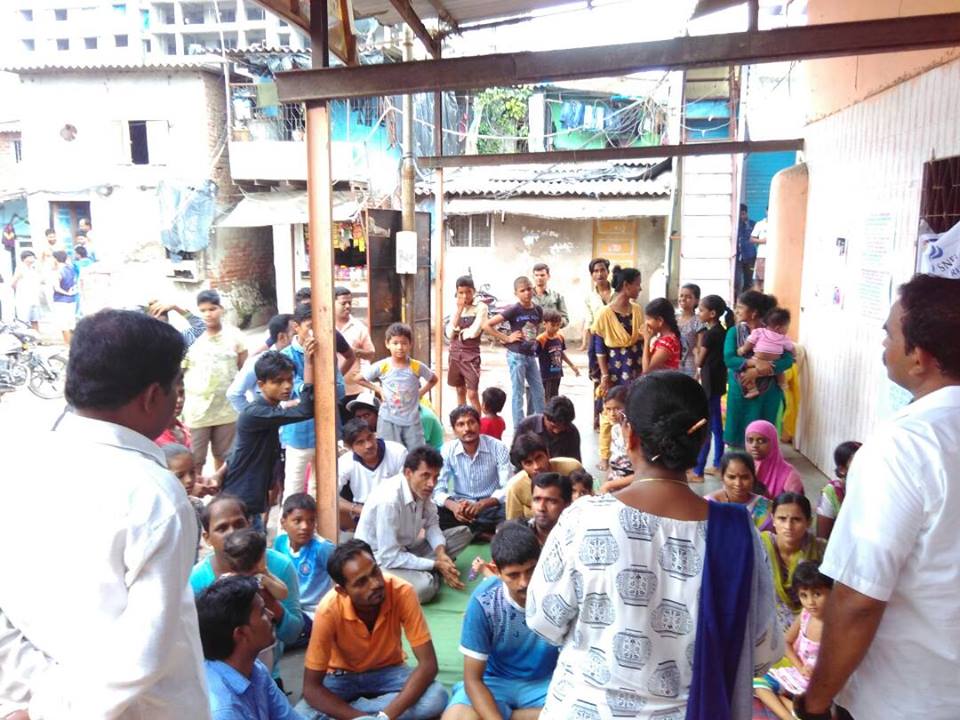How People And a Phone App Are Challenging Gender Violence in a Mumbai Slum
Despite stringent pro-women laws, India is still searching for answers on how to end the rising tide of gender-based violence against women. This unique initiative may just be the roadmap we need.

Neeta (name changed) was five months pregnant when she went to the hospital for medical termination of pregnancy. When the concerned counsellor from Mumbai-based NGO SNEHA (Society for Nutrition, Education and Health Action) at the Women’s OPD asked her the reason for this high-risk decision, the harried 32-year-old revealed that she was doing it because her husband did now want the child at any cost.
When the counsellor probed for more details, Neeta revealed that husband had also been violent towards her. Due to the lack of support, financial constraints and constant marital disputes, she felt her only option was to abort the baby.
Realising the young mother’s dilemma, the counsellor held joint meetings for the couple as well as for the husband’s family members. But even after all this, they refused to support Neeta’s wishes..
Bolstered by the information and assistance provided by the counsellor, after much thought, Neeta decided that she would have the baby, even if it meant doing so on her own.
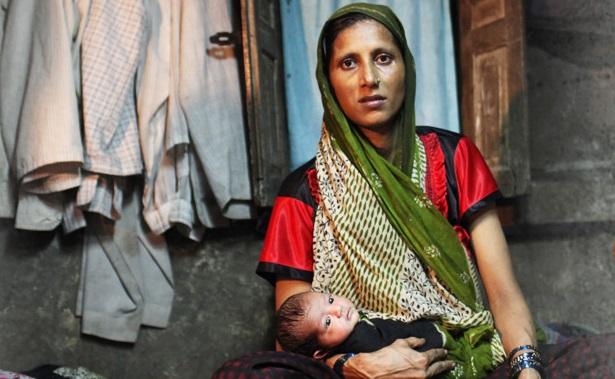
With the help of a SNEHA lawyer, Neeta filed a case under the Protection of Women from Domestic Violence Act, 2005. She obtained a maintenance order for herself and her child, but her case continues in court.
Today, thanks to the NGO’s tireless efforts, Neeta lives independently in a rented house with her baby. She has started looking for a job so that she can support the two of them better.
“When I approached SNEHA, I was so confused with my life. When I look back today, I can see the changes that have been wrought in me. Now I am a different Neeta, full of determination and confidence. Now I can and I will fight the world for my child”, says the happy young woman.
Neeta belongs to Dharavi, a teeming slum of one million people souls in Mumbai that has a high incidence of gender-based violence, discrimination and harassment. However, these social menaces are not limited just to Dharavi; they have a distressingly pervasive presence across India.
Thousands of women and girls are subjected to different forms of abuse every second of every day in our country. Most of these go unreported.

According to the National Family Health Survey (NHFS) findings, nearly 47% percent women in the country have faced some violence, and only 2% of these women have asked for institutional help.
The recently published findings of National Crime Records Bureau (NCRB) also highlighted the severe, diverse and omnipresent nature of violence faced by Indian women. And much of it – domestic violence, dowry deaths, rape, child abuse, honour killings and acid attacks – take place at the hands of family members.
In fact, NCRB data shows that crime against women has increased by 34% since 2012 and that 43.6% of all these crimes are committed by relatives.
In the multi-ethnic, congested environment of Dharavi, this serious problem is compounded by the fact that most women are poor and uneducated.
The relentless pressure to survive, scarcity of space and unsanitary living conditions lead to a high occurrence of deprivation, malnutrition and disease – and often abuse of vulnerable women and children.
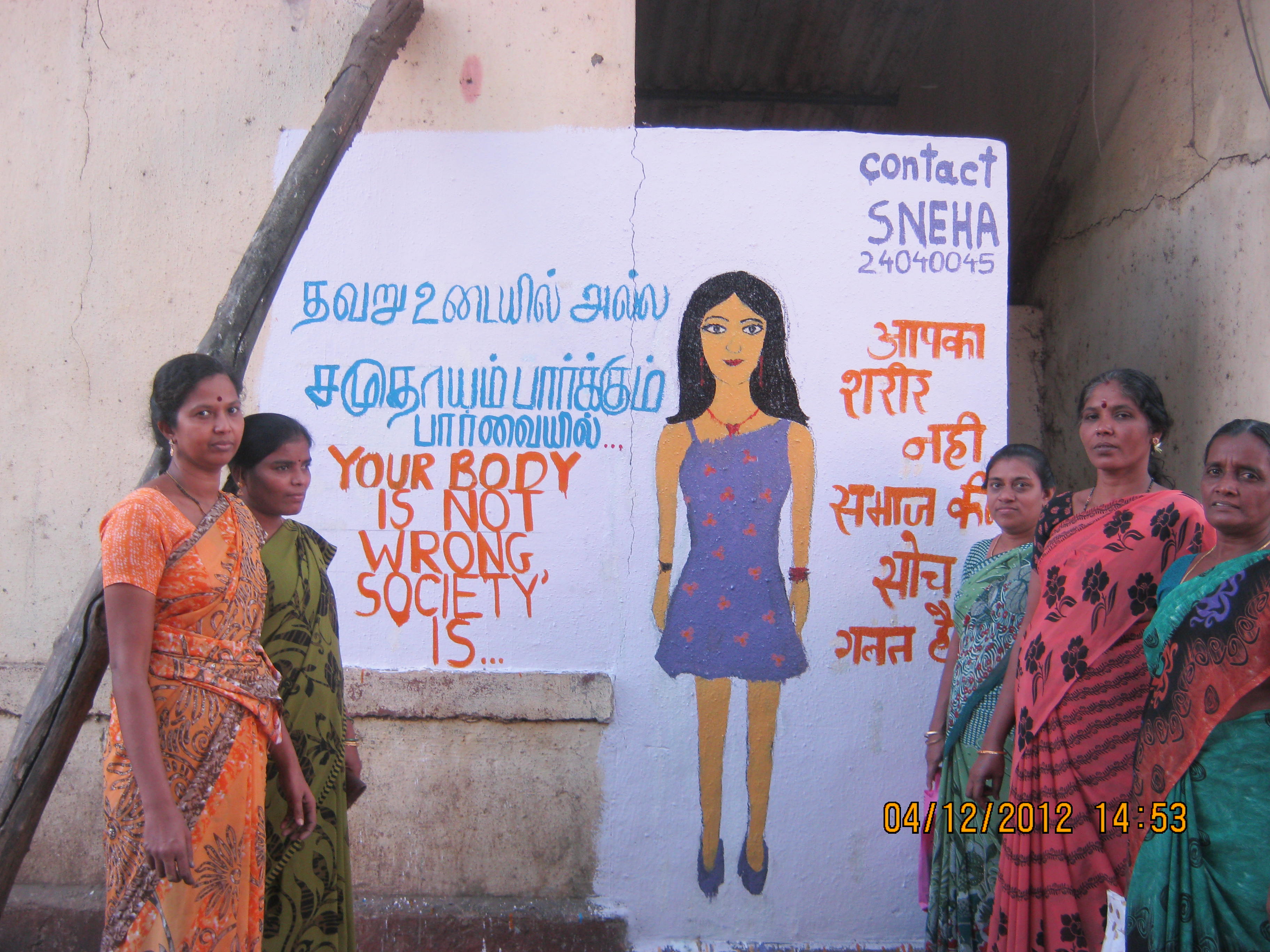
It was to change this bleak scenario and make a lasting difference that SNEHA started working with women in Dharavi in 2001. It began using multi-pronged, technology-backed and participatory approaches to prevent gender violence, ensure survivors’ access to protection and justice, secure female rights, mobilise communities around ‘zero tolerance’, and respond to the needs of marginalised women.
Cognizant of the fact that it was vital to involve men in the process of finding solutions — sexism, male dominance and patriarchal social norms form the foundation of violence against women — the organisation started conducting regular meetings with the men of the community. The idea was to raise awareness against gender-based violence and to demystify issues relating to sexuality and sexual health.
Though the meetings initially had to face a lot of resistance, they gradually found acceptance among the community. Today, the volunteer group has hundreds of active members who participate regularly in these meetings and have started challenging deep-rooted patriarchal norms.
As the team states, “If men join the conversations, change will come.”
Here’s an inspiring example: When a participant’s female cousin was harassed and physically abused by her in-laws for not bearing a male child, the entire group came together to support her and helped her file a police complaint.
In another very effective community outreach program, SNEHA established a network of community-based Sanginis (women volunteers) who monitor the safety of women and children in their neighbourhoods. Through the targeted programme, adolescent girls were also equipped with skills that enabled them to make responsible choices about their sexuality and reduced their vulnerability to sexual abuse.
Mobile technology was also harnessed to track and report instances of gender violence. For example, under its ‘Little Sister’ project, Sanginis were trained to identify and report gender-based violence using an Android app called EyeWatch. Once an alert was raised, the application placed a call to an employee who would immediately offer assistance, crisis intervention, legal support and counselling. The identity of survivors was kept private.
This technology helped the organisation crowd-source the reporting of violence, track cases of repeat violence, address the lack of a support structure and understand more about the prevalence of violence in the locality.
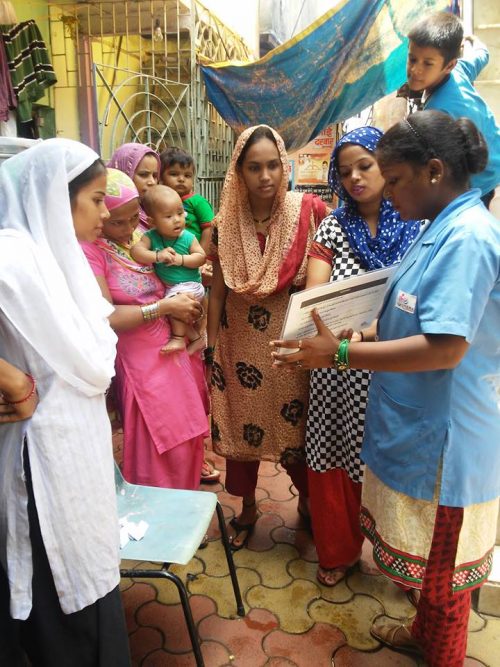
“Earlier, we would write the case details in a register, which was a cumbersome process. But now with this app, we do it electronically,” explains a Sangini from Dharavi, adding that the information is stored in a central database maintained by the NGO.
But if tracking and reporting violence was one part of the challenge, the next big hurdle was getting public authorities to act. For instance, in cases of domestic violence, policemen were often reluctant to file a case and encouraged at-home settlements that favoured reconciliations.
Even if a case was lodged, the dismal conviction rates made the victims feel that there was little point in reporting the crime.
So in its next step, SNEHA co-ordinated with public authorities to enhance the state response to crimes against women.
Guidelines were co-created, and a police-community network was established to fast-track referrals, upgrade legal interventions and ensure proper implementation of court orders.
Crisis centres were also set up in collaboration with Mumbai’s District Legal Aid Services Authority in Mumbai to assist women in filing legal cases of gender-based violence, facilitate access to medical services and provide psychological counselling (both immediate and long-term) to survivors.
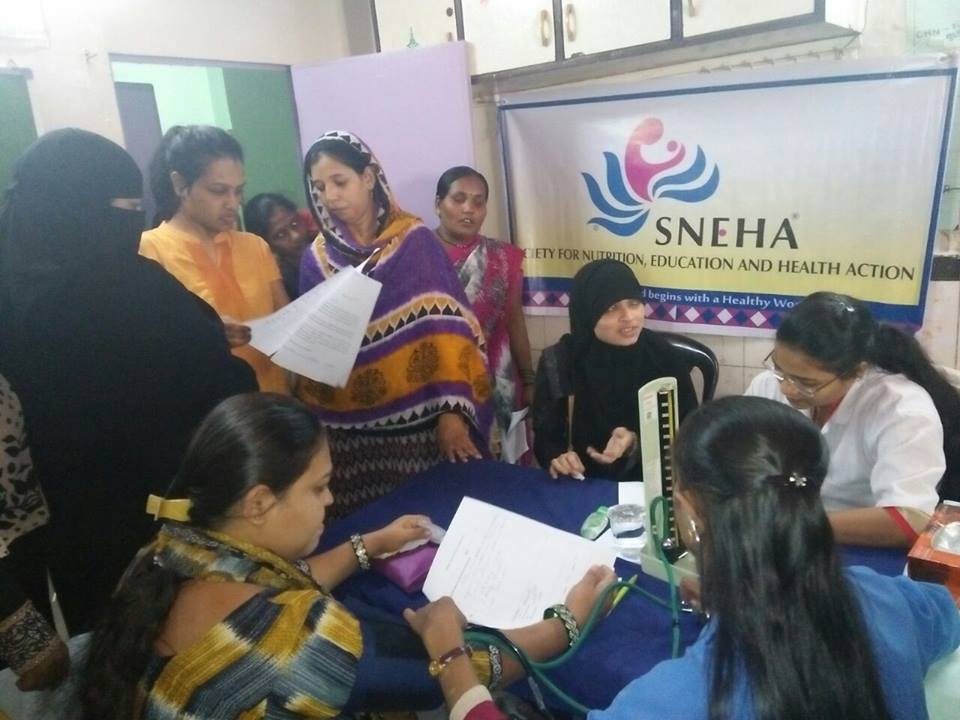
The OPD (Out-Patient Department) staff of public hospitals were trained in identifying evidence of violence among patients and conducting relevant medical examinations, with a special focus on enhancing their gender-sensitivity. They were also collecting forensic evidence to be submitted to the court incorrectly.
In short, the organisation’s core philosophy has been to address gender violence through a multi-pronged approach that has three crucial aspects — first, using technology to make reporting, documenting and helping easier; second, a structured and sensitive convergence of responses from a range of support services; and third, real people (both men and women) watching out for each other and intervening every time they encounter violence in the community.
The effectiveness of this approach is clearly illustrated by the fact that it has helped SNEHA successfully address over 5000 cases of violence, sensitize over 4500 police officers, and trained over 2100 public hospital staff in counselling and crisis intervention.
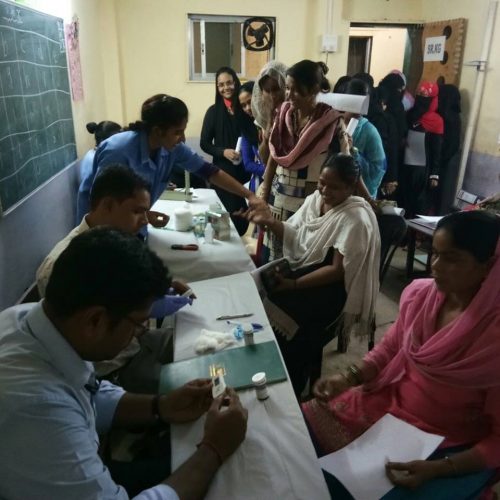
However, nothing illustrates the merits of these simple yet effective initiatives than the tangible positive changes brought by them in the lives of over 300,000 women who now have a voice and a choice to lead change in their personal lives as well in their communities.
Despite rising levels of education and stringent pro-women laws, India is still searching for answers on how to end the rising tide of gender-based violence against women. If left unaddressed, it can have serious consequences for the country’s efforts towards achieving the all-important Sustainable Development Goal (SDG) of gender equality. It is time for action and initiatives like this may just be the roadmap we need.
This article is a part of The Better India’s attempt to drive conversation around the United Nations’ Sustainable Development Goals (SDGs) and where India stands with regards to meeting these goals. Many organisations across the country are helping India proceed towards fulfilment of these goals and this series is dedicated to recognising their efforts and the kind of impact they have created so far.
Also Read: How the Simple Act of Eating Together Is Tackling Malnutrition in Rural India
Like this story? Or have something to share? Write to us: [email protected], or connect with us on Facebook and Twitter.
NEW: Click here to get positive news on WhatsApp!
This story made me
- 97
- 121
- 89
- 167
Tell Us More
We bring stories straight from the heart of India, to inspire millions and create a wave of impact. Our positive movement is growing bigger everyday, and we would love for you to join it.
Please contribute whatever you can, every little penny helps our team in bringing you more stories that support dreams and spread hope.








